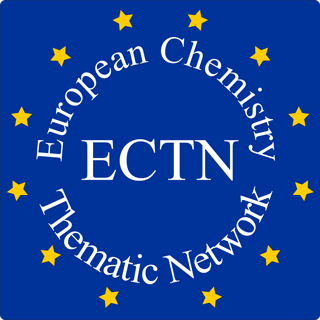STEM-CPD @ EUni
The ECTN has become a partner in a new project entitled: STEM Continuous Professional Development at European Universities. The project was initiated by the ECTN Work Group on Lecturing Qualifications and Innovative Teaching Methods, and is led by the Faculty of Chemistry, Jagiellonian University in Krakow (ECTN member). This 3-year project is funded by the EU under the KA2 – Cooperation for innovation and the exchange of good practices, KA203 – Strategic Partnerships for higher education action of the Erasmus+ programme of the European Union.

For a long time, there has been an erroneous belief that being a renowned researcher is enough to be a decent university teacher. Now it is generally recognised that for good teaching abilities, pedagogical knowledge and teaching skills need to be developed and to this effect, most universities now organise some training for their academic staff. According to the survey of the European Chemistry Thematic Network Association (ECTN) Working Group, the training for lecturers at different universities greatly varies and are on the most part voluntary. Besides, the teaching staff training is usually focused only in pedagogy and in general teaching skills. They are organised in groups of lecturers in different disciplines. In this way, training cannot address specifics of teaching and learning in one determined discipline and the potential that specific digital tools can have for one discipline. This means that university lecturers in the present situation at most HE institutions cannot develop nor keep up to date with their Technological Pedagogical Content Knowledge (TPACK) (Mishra and Koehler 2006).This is extremely important in STEM disciplines where there is a fast development of science and technology knowledge which is strongly connected to complex social quests that have a multicultural dimension.
To cope with these changes and to assure sustainable quality of teaching and learning in university STEM disciplines, a STEM oriented Continuous Professional Development (STEMCPD) of lecturers at their universities is indispensable. It is known that professional development works on its best if it is closely connected to working practice, in our case STEM teaching practice.
It is a very complex and demanding task for one university by itself to organise continuous professional development activities for the lecturers in each and all particular disciplines in which they operate. Even more, we believe that no university in Europe, no matter how big or wealthy, can correctly handle this alone because collaboration is essential to reach the necessary international discourse focusing specially towards quality considerations.
The aim of this project is to promote the importance of CPD at the EU universities in order that lecturers can keep on track with the quality of teaching and learning considering the developments in STEM disciplines and in society and cope with challenging problems that arise. The main goal is to develop a sustainable cooperation between people who organize or who wish to organize technological pedagogical content knowledge oriented CPD activities at their universities. This will be based on an inter university collaboration framework within the EU context, the so-called CPD-Ambassadors and through the activities of said CPD-Ambassadors with the aim of improving the teaching competences of university lecturers at their home universities and in consequence improve university courses. This will increase notably motivation and enhance learning outcomes of the students.
CPD needs to be considered as a normal part of professional life for all academic staff. The project will bring together a broad spectrum of learning opportunities for teaching staff of participant institutions in order to improve the quality of education in university STEM by enhancing the quality of teaching and learning – one of the priorities in the current Bologna Agenda and the Paris communiqué. Partners in the STEM-CPD@EUni project will create synergies between professional development in teaching and research, supporting collaboration and communication of the academic staff with educational developers, professional bodies and the private sector.
To give the impulse to this process and to empower the local CPD activities at the STEM faculties during the project, a summer school will be organized twice with the aim of training future CPD-Ambassadors. The philosophy of the summer schools is to train the trainer in co-creation. At the summer school the CPD-Ambassadors will gain knowledge, receive relevant material and produce their own resources to organize CPD activities at their home universities, the so-called user cases.
In this project, six partners will collaborate on six intellectual outputs (IOs):
- In IO1 a Roadmap to set up STEM continuous professional development at EU Universities will be designed based on the expectations of the different stakeholders.
- In IO2 the Framework for STEM-CPD according to the CPD-Ambassador principle will be developed.
- In IO3 STEM-CPD scenarios and user cases will be collected and shared on the open platform.
- In IO4 open online modules, the microMOOCs, will be developed to be used in CPD activities in different user cases.
- In IO5 will design the summer school, its activities, materials and certification of CPD-Ambassadors.
- In IO6 the evaluation and effect measurements will be conducted to evaluate user cases and CPD scenarios in the European context.
The list of partner institutions for STEM-CPD@EUni:
- Uniwersytet Jagielloński – Jagiellonian University (Krakow, Poland)
- European Chemistry Thematic Network Association – ECTN (Brussels, Belgium)
- Universiteit van Amsterdam – University of Amsterdam (Amsterdam, The Netherlands)
- Univerza v Ljubljani – University of Ljubljana (Ljubljana, Slovenia)
- L’Università degli Studi di Napoli Federico II – University of Naples Federico II (Naples, Italy)
- Oulun Yliopisto – University of Oulu (Oulu, Finland)
Disclaimer: The European Commission’s support for the production of this publication does not constitute an endorsement of the contents, which reflect the views only of the authors, and the Commission cannot be held responsible for any use which may be made of the information contained therein.
